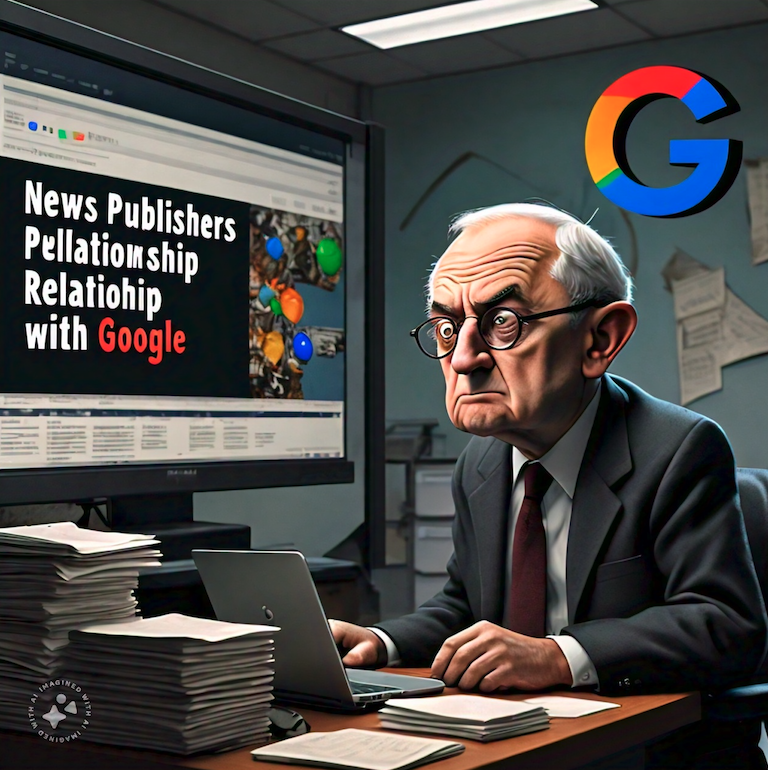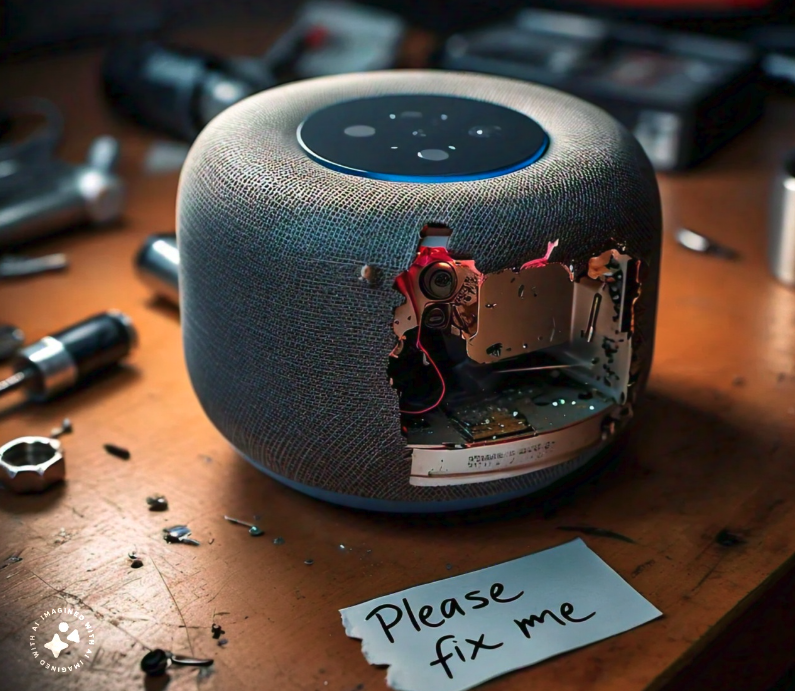Why Local Citations Don't Work, AI Dilemma, RIP Smart Speakers?

The 'Why' Behind Citations' Decline
It's now clear from the Search API documents leak that Google carefully tracks and grades clicks and links using clickstream data from Chrome. And one of the "aha" moments for me from our recent interview with Rand Fishkin fills in a causal blank about why long-tail listings distribution no longer "works" for SEO. Listings management was arguably the top local ranking factor in 2014. Since that time it has declined significantly in importance, confirmed by the Local Search Ranking Factors and a recent SOCi study. The explanation for the decline of long-tail listings' SEO influence has always been a version of the following: Google built up its local graph and GBP data and doesn't need need to look to third party citation consistency anymore. But the search leak documents suggest that Google uses clickstream data to discount links on low-traffic pages and reward those on high-traffic pages. Much of the long-tail directory syndication goes to sites that have little or no traffic now. While this is logical and may be self-evident in hindsight, it was the missing piece in the citations story.

Our take:
- As you can see in the chart above, most of the old local listings sites get very little traffic today, though they once did.
- Accordingly, links on those sites effectively don't count. Conversely, higher traffic sites (that people still use) are going to be valuable for SEO.
- We've always argued you should focus on sites that consumers actually use. But this new revelation appears to be a causal explanation for citations' decline.
AI Overviews: The Publisher's Dilemma
After considerable negative attention and major media coverage over the past couple weeks, Google finally made a significant public statement about the gaffes and errors in its AI Overviews. It came as a blog post from Liz Reid, the head of Google Search. Reid defended Google and said the errors were infrequent, isolated or fabricated to make the company look bad. Google has so far said that users like AI Overviews and that they're driving more search engagement and clicks. By comparison, publishers mostly don't like them – or, more precisely, fear them and the idea that they represent zero-click on steroids (to use the hackneyed expression). Here's the dilemma (via NYT): "Media executives said in interviews that Google had left them in a vexing position. They want their sites listed in Google’s search results, which for some outlets can generate more than half of their traffic. But doing that means Google can use their content in AI Overviews summaries." ChatGPT has been striking licensing deals with selected publishers but Google has not, fearing it will set a precedent in paying for content. This may be a no-win, "damned if you do, damned if you don't" scenario for most publishers.

Our take:
- Americans are turning less often to traditional news sources. This creates an imperative to reach users where they are.
- Today that means social media and Google, which tends to commoditize news and reduce the value of publisher brands, even as it relies on them.
- Regardless of AI Overviews, publishes must develop alternative channels, build stronger brands, strengthen first-party relationships.
Smart Speakers and AI: Rebirth or RIP?
We're at something of a crossroads in the smart speaker market. Once projected to be worth $61 billion by 2032, the segment long ago lost its novelty and appeal to many consumers. Google has seemingly been deemphasizing Google Nest/Home. And the current Google Assistant is being folded into Gemini. Also, Amazon Echo penetration has plateaued. The product was exposed a massive money loser and thousands of employees were laid off. To inject new life, Siri, Alexa and Google Assistant are all getting "AI makeovers." Will this make them more interesting and useful? Smart speakers disappointed because their voice assistants didn't evolve beyond functions like weather and kitchen timer. AI could fulfill the early promise of voice assistants and make them truly conversational (like ChatGPT 4o). Amazon reportedly hopes to charge a new subscription fee for an upgraded Alexa (probably DOA). And, next week, Siri is getting AI out of competitive necessity. It could signal the rebirth or the end of smart speakers.

Our take:
- Voice assistants will evolve and live on; the main question is where and how they'll be accessed.
- Smart speakers appear to be reaching the end of their run, although there are lots of them in homes. AI could reinvigorate growth.
- The business model remains a problem: nobody ever figured out how to make money off smart speakers, other than by selling the devices themselves.
Recent Analysis
- Local Search Implications of the Google API Leak, by David Mihm.
- Near Memo episode 159: Rand Fishkin interview: The importance of the the Google Search Leak
Short Takes
- The GBP verification status tool has new options for support.
- A searchable database of the Google Search API leaked attributes.
- Google API leak implications for digital PR.
- Google appears to create links for AI Overviews after the fact.
- Novel way to rank in Google AI Overviews (won't last long).
- Google mixing ads into organic search results more frequently.
- Don't trust AI Overviews for health queries (NYT).
- After July 5, Google won't index your site if it's not mobile friendly.
- Another leak: undisclosed Google privacy incidents over years.
- SEO argument: Mid-funnel keywords now the place to focus.
- How Facebook is trying to win back GenZ users.
- Some things to expect from Apple's WWDC next week.
- Amazon Project PI: AI to scan products for defects before shipping.
Listen to our latest podcast.

How can we make this better? Email us with suggestions and recommendations.

